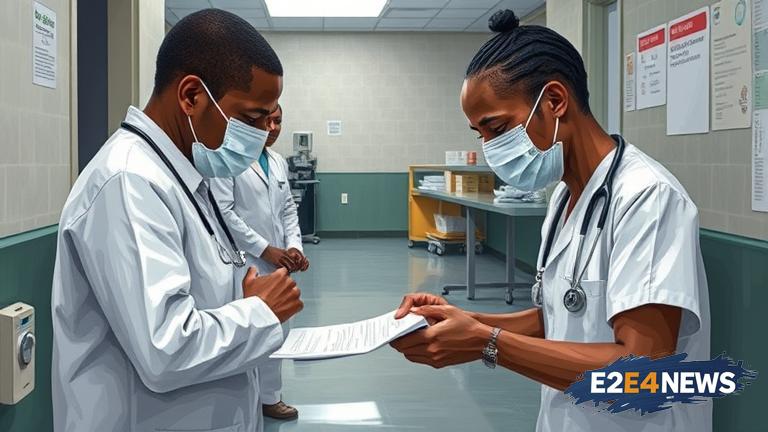Botswana, a country located in Southern Africa, has recently declared a public health emergency in response to a critical shortage of medicine in its clinics. This shortage has been attributed to a combination of factors, including supply chain disruptions, funding constraints, and logistical challenges. As a result, many clinics and healthcare facilities across the country are struggling to provide essential medical services to patients. The situation has become so dire that the government has been forced to take drastic measures to mitigate the crisis. The declaration of a public health emergency is a clear indication of the severity of the situation and the need for urgent action. The government has assured citizens that it is working tirelessly to resolve the issue and restore the supply of medicine to clinics. In the meantime, patients are being forced to seek alternative sources of medication, including private pharmacies and online retailers. However, this is not a viable option for many, particularly those in rural areas who lack access to such facilities. The shortage of medicine has also had a significant impact on the country’s healthcare system, with many hospitals and clinics being forced to turn away patients due to a lack of essential supplies. The situation is particularly concerning for patients with chronic conditions, such as HIV and tuberculosis, who require regular access to medication to manage their conditions. The government has acknowledged the gravity of the situation and has pledged to do everything in its power to address the shortage. This includes working with international partners to secure emergency shipments of medicine and implementing measures to improve the country’s supply chain management. The declaration of a public health emergency has also prompted a response from the international community, with many organizations and countries offering support and assistance to help Botswana address the crisis. The situation in Botswana is a stark reminder of the challenges faced by many countries in Sub-Saharan Africa in terms of accessing essential medicines. The region is home to some of the world’s most vulnerable populations, and the shortage of medicine in Botswana is just one example of the many healthcare challenges that these countries face. Despite the challenges, the government of Botswana remains committed to improving the health and well-being of its citizens and is working tirelessly to address the shortage of medicine. The country has made significant progress in recent years in terms of improving its healthcare system, and the current crisis is a setback to these efforts. However, with the support of the international community and the determination of the government, it is hoped that the situation can be brought under control and the health and well-being of the citizens of Botswana can be protected. The shortage of medicine in Botswana is a complex issue that requires a multifaceted response. The government, international organizations, and other stakeholders must work together to address the root causes of the shortage and implement measures to prevent such a crisis from occurring in the future. This includes investing in the country’s healthcare infrastructure, improving supply chain management, and increasing access to essential medicines. By working together, it is possible to overcome the current challenges and ensure that the citizens of Botswana have access to the medical care they need. The situation in Botswana is a wake-up call for the international community to take action to address the global shortage of essential medicines. This is a crisis that affects not just Botswana, but many countries around the world, particularly in Sub-Saharan Africa. It is imperative that governments, international organizations, and other stakeholders work together to address this crisis and ensure that all people have access to the medical care they need. The declaration of a public health emergency in Botswana is a significant step towards addressing the shortage of medicine, but it is only the beginning. The road to recovery will be long and challenging, but with the support of the international community and the determination of the government, it is possible to overcome the current challenges and build a stronger, more resilient healthcare system for the people of Botswana.
